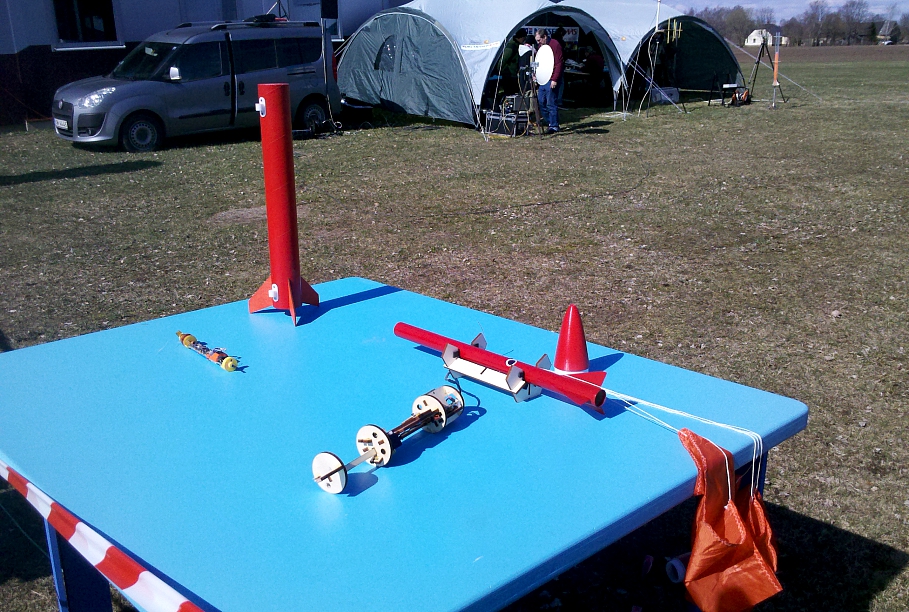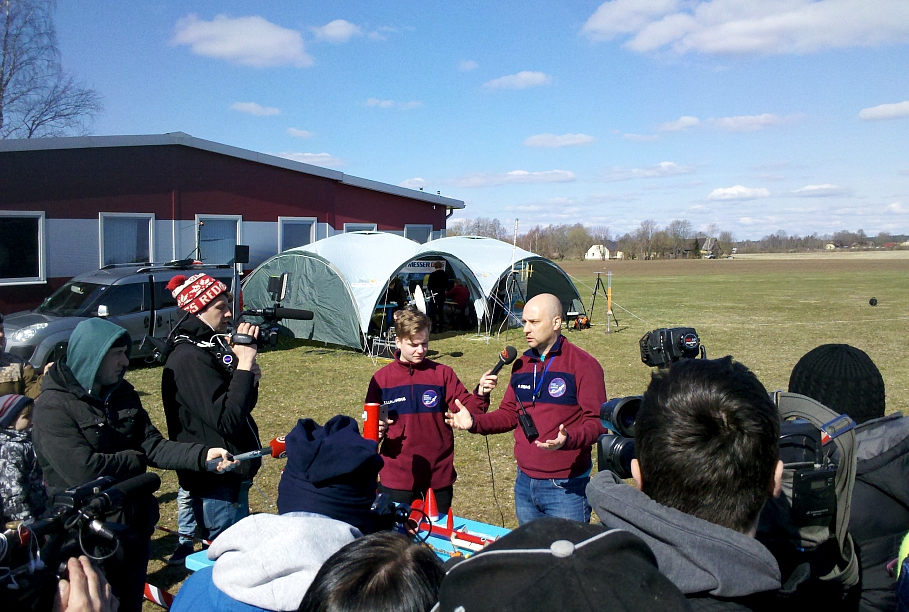But before anyone sends a task force to deal with Latvia's new missile, it should be pointed out that we come in peace and the moonshot only went about 2 kilometres up.
At that height, separation was achieved and on-board cameras clearly showed the curvature of the earth, for the benefit anyone still clinging to flat-earth theories.
The intention is to send a considerably larger rocket up 100 km next year to celebrate Latvia's centenary and make the country one of the first twenty to send an object into space.
Latvijas pirmā izmēģinājuma raķete startējusi! Seko līdzi tiešraidei #LMTstraumē! https://t.co/VVUys53dqc pic.twitter.com/AQtaYybuGU
— Mans LMT (@mansLMT) April 20, 2017
The idea is the brainchild of Pauls Irbins and while sending a 300 gram rocket 2,000 meters up may not seem as spectacular as the Apollo or Vostok programs, it was carried out successfully and provides useful data and experience for the main lift-off next year.
The initiative, which is being sponsored by the LMT telecoms company, is also being used as a way of encouraging children into science.

LSM went to Latvia's version of Cape Canaveral - two tents in a field - and spoke to some of those assembled to watch the main event plus the launch of several smaller but no less impressive rockets and gliders designed by students.
Among the crowd was well-known local entrepreneur Mareks Matisons who pointed out that the launch was more than a marketing gimmick and actually drew on real expertise.
Looking perhaps slightly more nervous before the countdown started was a Ingmars Pukis of LMT, whose sponsorship could quite literally have been blown to smithereens had anything gone wrong.
Thankfully, everything went according to plan and after the briefest of flights the rocket drifted back to earth under parachutes, landing not far from a greenhouse.
After recovery and relocation (putting it back on a table) everything was declared to be in good order. Success!
And adding some heavyweight credibility to Latvia's nascent space program was planetary scientist Amara Grapa of Baltics in Space, which will be organizing a major conference later this year.
Now that Latvia's space race is well and truly on, an ambitious program of future launches is planned to take a rocket the remaining 98% of the 100 km distance.
Later this summer it is hoped to send a rocket up to 50km, with the 100km target pencilled in for the Fall of 2018 to coincide with Latvia's centenary.





























